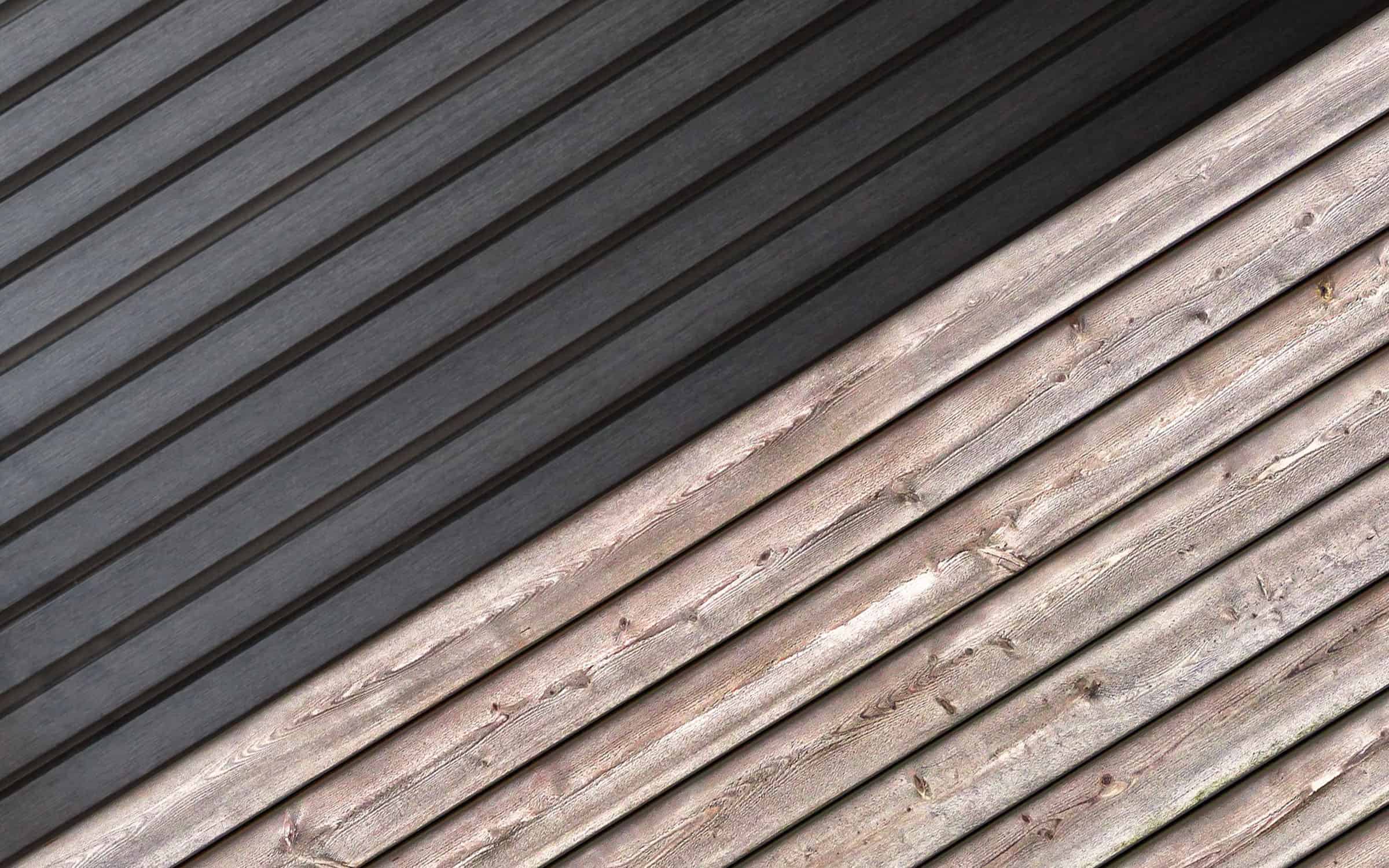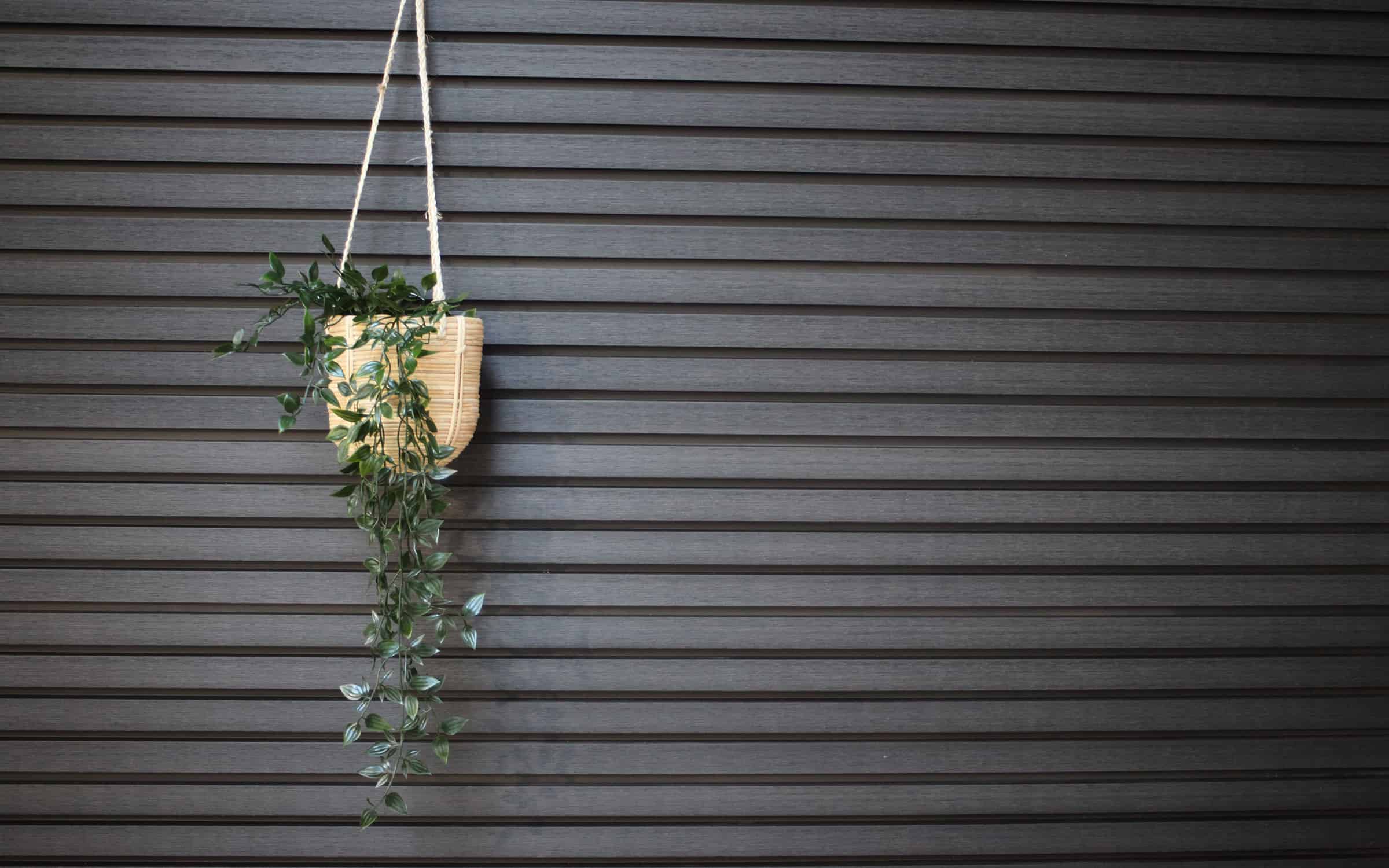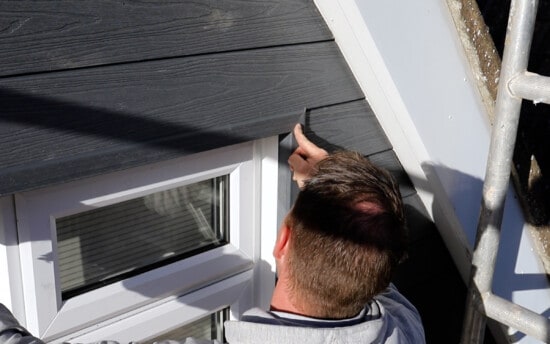So exactly how does NeoTimber® composite cladding compare on price with wood?
Anyone looking at timber and composite cladding at face value would likely consider timber to be the more economical option. Composite cladding requires additional processing, and is usually imported from the Far East. Meanwhile, depending on the type of timber used, wood can be locally sourced for your convenience.

But you know what they say – time is priceless. While, at the outset, timber may seem like the cheaper choice, composite cladding pulls ahead in its ability to maintain its looks for years on end. You see, unlike composite cladding, timber demands regular treatment. Treatment that costs both time and money. Not to mention that you might find yourself having to replace warped, cracked, or rotted boards not long after installation. We give timber a few years max before it begins to degrade. So, considering this, we ask you – is wood really the cheaper option?

Is Composite Cladding Cheaper Than Timber?
Let’s start with a direct comparison. Lay out the framework, if you will. We can’t deny that, per square metre, timber is cheaper than composite cladding. Coming in at approximately £20-£60 per square metre – compared to NeoTimber’s £39.35-£64.02 per square metre price point – you’d think the decision is made. ‘One’s cheaper than the other, so I’ll go with that, right?’ Hold your horses; you might not want to make such a snap decision.
Though timber draws people in with its cheaper price-tag, it doesn’t actually come with a manufacturer’s warranty. ‘Why is that?’ you might ask. Because, put simply, wood is renowned for bowing under pressure. It’s for this reason that we recommend shifting your attention away from the initial cost, and instead focus on what costs could arise once your cladding has been installed. If you don’t want to keep paying out for timber’s upkeep, then it definitely isn’t for you.
Is Composite Cladding Cheaper to Install Than Wood?
The wonderful thing about composite cladding is that it’s primarily organic. Being 60% timber, it can be cut and sawn to size as easily as wood. This means that the physical labour cost of installing composite cladding tends to match that of timber, given that most installers are well-versed in the relevant installation methods. According to “Price Your Job”, the cost of installing cladding comes to around £600-£900 (based on an average installation time). This is assuming that your installer operates at a daily rate of £150-£200 – with a labourer costing a further £80-£100 per day – for a three-day project. However, prices are know to vary depending on both the m2 coverage and the type of installation.


The Cost of a Better Tomorrow
Composite cladding, like all composite products, is made from a combination of end-of-use timber fibres and recycled plastic. While the cost of purchasing these materials is minimal, the bulk of the price comes from sourcing the raw materials. Compared to timber, you can’t just chop a plastic tree down. We have to put in a little extra effort to protect the environment, and this effort comes at a slightly higher cost than acquiring traditional lumber. Once felled and sawn, timber is ready for shipping and sale. Composite cladding, however, must undergo a detailed process to guarantee a level of quality we’re happy with. We’ll only give you the very best, and we’ve priced our products in line with this sentiment. We don’t take the mick; we give you a product that’s worth every extra penny.
What is the Real Cost of Timber Cladding?
Timber cladding may seem like the cheaper, organic option. However, instead of taking from natural habitats and contributing toward deforestation, our composite cladding is made entirely from recycled materials. This makes it one of the most sustainable cladding alternatives out there. While yes, some timber is sourced from renewable sources and suppliers who boast about their replanting strategies, it just isn’t enough. In fact, it’s been proven that mature trees make a far greater contribution to CO2 processing than recently planted trees. Let’s not forget that trees like Red Cedar can take up to 50 years to reach maturity. That’s a long time to wait to reap the benefits of replanting. We hope to play a part in stopping deforestation before it’s out of our control – to tackle the problem at the root, instead of trying to play damage control. Our trees deserve to stand tall for hundreds – or even thousands – of years. Composite products help make that happen.

How Much Does It Cost to Maintain Timber Cladding?
Composite cladding is supplied with a 25-year residential warranty. Most timber cladding is supplied with a far inferior warranty, dependant upon your regular maintenance. A typical 2.5 litre pot of timber treatment will cost you roughly £75 per pot. You have to treat your timber annually. Assuming timber lasted as long as composite, you’ll pay almost £1900 just on oil to treat your timber. As timber ages, it dries and may need sanding before re-painting. Not an easy job when you’re up a ladder.
In contrast, composite cladding requires no maintenance, save for the occasional hose down and the odd spot stain treatment when a passing bird drops a gift. For this reason, composite cladding is by far the most economic, eco-friendly, and labour-saving cladding option for homeowners and business owners alike. Want to get a better idea of what we mean? Why not order some free samples from the NeoTimber® website today? We can’t wait to show you everything we have to offer.
Need Further Support or Advice?
If you’ve still got questions that have not been answered here, or you would like additional advice,
support or assistance then please give one of our friendly experts a call and we’ll be happy to help.
Just give us a call on 01530 382 180.
